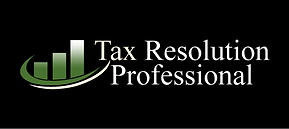In today’s digital age, where information is readily available at our fingertips, it’s important that we remain vigilant and wary against fraudulent schemes and scams, especially when seeking tax relief services.
While there are legitimate tax relief professionals who can assist individuals with resolving their tax issues, there are also plenty of unscrupulous individuals and companies looking to take advantage of unsuspecting taxpayers.
To help you safeguard yourself against tax scams, we’ve compiled a list of tips for protecting yourself from these fraudulent tax relief services.
Research the Company
Before engaging with any tax relief company, take the time to research them thoroughly. Look for reviews, testimonials, and ratings from reputable sources to gauge the company’s reputation and credibility. Verify the company’s credentials, such as licenses and accreditations, and make sure they are legitimate.
Beware of Unrealistic Promises
Be cautious of tax relief companies that make unrealistic promises or guarantees, such as promising to settle your tax debt for “pennies on the dollar” or guaranteeing specific outcomes.
Resolving tax issues with the IRS is a complex process, and there are no guarantees of success. Legitimate tax relief professionals will provide realistic expectations and work diligently with you to achieve the best possible outcome for your situation.
Avoid Upfront Fees
Any tax relief company that requires upfront fees to be paid in full or demands payment before properly diagnosing a case is a red flag. Reputable tax relief professionals typically offer free consultations to assess your case and will provide recommendations and options to you.
Once they determine if working together is a good fit, they will outline their fee structure clearly and transparently with an Engagement Agreement Letter.
Verify Contact Information
Before providing any personal or financial information to a tax relief service, verify their contact information, including their physical address, phone number, and email address.
Fraudulent companies are skilled at using fake or misleading contact information to avoid detection. Legitimate tax relief professionals will have a verifiable presence and be responsive to inquiries. Your personal information should always be guarded, so this step is crucial.
Check for Complaints or Scam Reports
Search online for any complaints or scam reports associated with the tax relief service you’re considering. The Better Business Bureau (BBB) and Federal Trade Commission (FTC) maintains a database of consumer complaints and investigations into fraudulent activities.
Avoid the companies with a history of complaints or suspicious behavior. There are plenty of credible options available to you without having to resort to a company with a bad reputation.
Trust Your Instincts
If something seems too good to be true or if you feel uncomfortable with the information provided by a tax relief service, trust your instincts and proceed with caution.
Your intuition can often alert you to potential scams or deceptive practices. Take the time to thoroughly evaluate your options and seek advice from trusted sources before making any decisions.
By following these tips and exercising caution when seeking a reputable and trustworthy tax relief service, you can protect yourself from falling victim to fraudulent schemes and scams. If you do encounter any suspicious or fraudulent activity, report it immediately to the appropriate authorities, such as the BBB or FTC, to prevent others from being victimized.
If you’re in need of legitimate tax relief assistance, consider reaching out to our team at Tax Resolution Professional. We are dedicated to helping taxpayers resolve their tax issues ethically and effectively, and we’re here to guide you through the process with integrity and professionalism.
Contact us today at 512-361-9331 for a no-obligation consultation to review your options and we can determine what your next steps should be.

